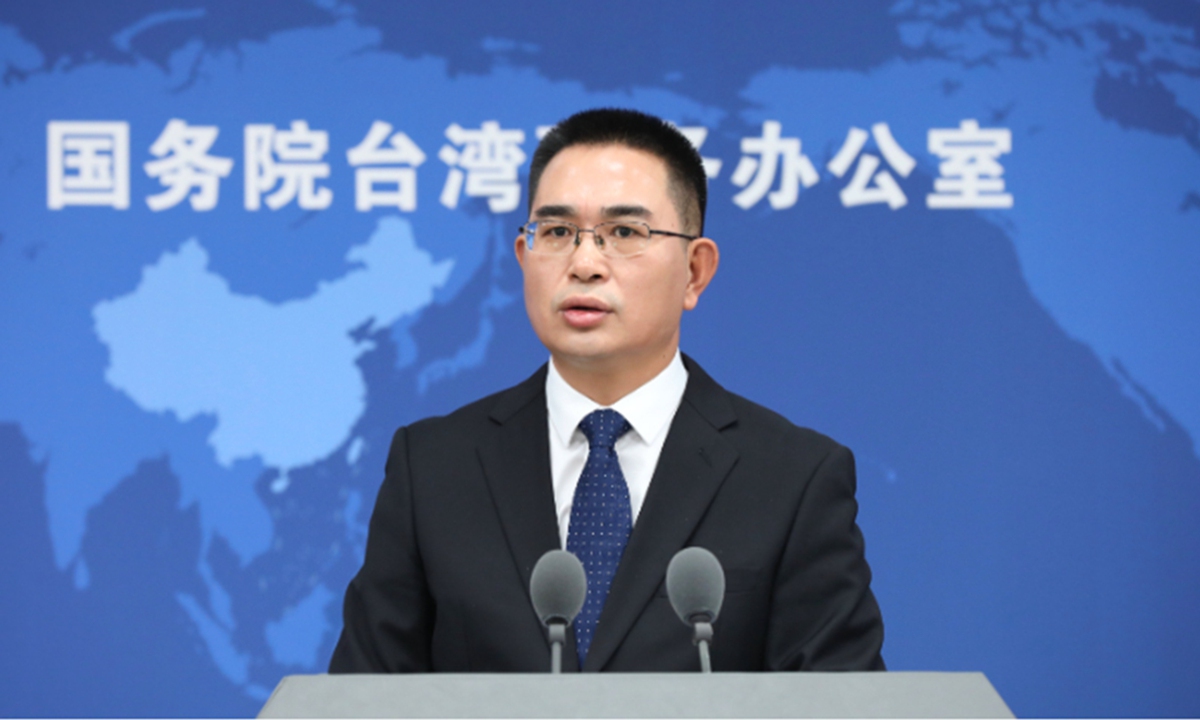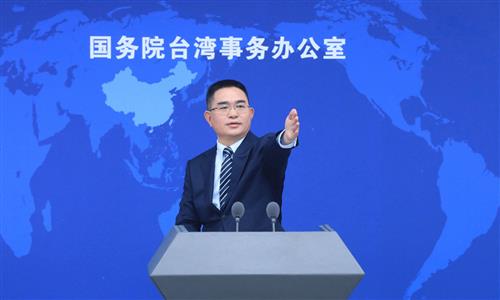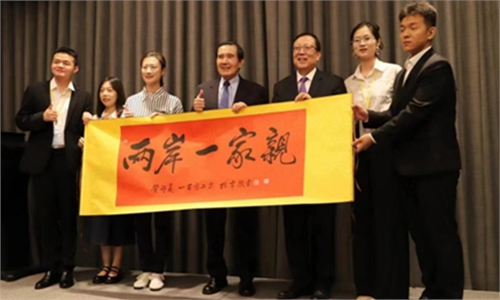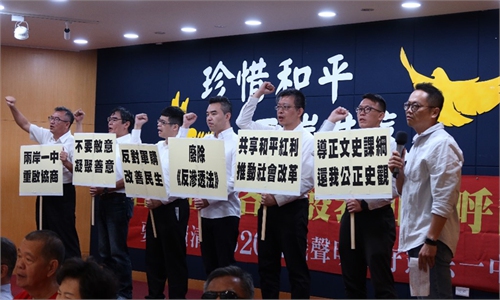Taiwan regional leader-elect must give clear answer to whether to pursue path of peaceful development or deviate from public opinion: spokesperson

Chen Binhua, a spokesperson for the State Council's Taiwan Affairs Office Photo:VCG
It is peace, not war; development, not regression; interactions, not separation; and cooperation, not confrontation that represent the prevailing public sentiment in Taiwan society and Taiwan regional leader-elect must give a clear answer to whether to heed the people's aspirations and pursue the path of peaceful development or deviate from public opinion, Chen Binhua, a spokesperson for the State Council Taiwan Affairs Office, on Wednesday responded regarding the scheduled inauguration speech of Taiwan regional leader-elect Lai Ching-te, on May 20.
"Taiwan independence" is fundamentally incompatible with peace in the Taiwan Straits, Chen said.
The mainland consistently upholds the one-China principle and the 1992 Consensus, firmly opposes "Taiwan independence" separatism and external interference, continuously expands cross-Straits exchanges and cooperation in various fields, deepens cross-Straits integrated development, and is committed to promoting the peaceful development of cross-Straits relations and advancing the cause of national reunification, Chen said.
Taiwan's regional leader-elect, Lai, is scheduled to deliver a speech at the inauguration ceremony on May 20. His stance on cross-Straits relations is being closely watched by both Taiwan and the mainland.
On May 7, more than 60 pro-reunification groups, including the Labor Party of Taiwan, the Reunification Alliance Party, and the Blue Sky Action Alliance, initiated a peace declaration signing activity, urging the Democratic Progressive Party (DPP) authorities and Lai to adhere to the one-China principle, and stop compromising cross-Straits relations or forcing the people on the island to face the existential choice between war and peace.
The declaration launched by pro-unification groups in the island of Taiwan showcases the clear stance of far-sighted people from different walks of life in Taiwan, expressing their legitimate demands that align with the fundamental interests of the Taiwan people. It also reflects the common desire of the majority of Taiwan compatriots for peace, development, exchange, and cooperation, Chen said, expressing affirmation and appreciation for these people.
Given that some members of Lai's authority have strong "Taiwan independence" tendencies, including several listed as "stubborn Taiwan independence" separatists, analysts are concerned that the risk of "Taiwan independence" will continue to rise in the foreseeable future, making the situation in the Taiwan Straits increasingly complex and severe.
In response, Chen said at the press conference on Wednesday that for some time, the DPP authorities have stubbornly adhered to their "Taiwan independence" separatist stance, refusing to recognize the 1992 Consensus which embodies the one-China principle.
They have directed "Taiwan independence" separatists to openly promote the "two states" theory, colluded with external forces to seek "Taiwan independence" and make provocations, deliberately stirred up and intensified cross-Straits confrontation, and crudely obstructed and limited normal cross-Straits exchanges, continuously heightening tension and turbulence in the Taiwan Straits, said Chen.
"Taiwan independence" separatists betray the national interest, go against the will of the people, and seriously harm national sovereignty, security, and development interests. "We will not tolerate or condone this, nor will we turn a blind eye," Chen said, noting that for "Taiwan independence" separatists whose actions and words are egregious and who aggressively pursue separatist activities, China will in accordance with the law severely introduce legal measures to punish crimes of splitting the country and inciting separatism.
The legal measures against "Taiwan independence" are aimed at a very small number of separatists and their separatist activities, not at all Taiwan compatriots. We hope that the vast majority of Taiwan compatriots will uphold the national interest, conform to the trend of history, recognize the extreme harm of "Taiwan independence" separatism, and firmly resist and oppose any "Taiwan independence" separatist actions, said Chen.
During the Wednesday press conference, Chen also announced that the mainland will impose sanctions on five individuals and their families according to the law due to their spreading disinformation.
For some time, a few so-called commentators in Taiwan, including Huang Shih-tsung, Lee Cheng-hao, Wang Yi-chuan, Yu Pei-chen, and Liu Pao-chieh, have disregarded the facts of the mainland's development and progress. They have deliberately fabricated false and negative information about the mainland and spread it widely through television, the internet, newspapers, and other media, Chen said.
Their baseless remarks have misled some people on the island, stirred up cross-Straits hostility and confrontation, and hurt the feelings of compatriots on both sides of the Taiwan Straits. The facts are clear, and the circumstances are serious, said Chen.
Silence and tolerance toward evil amount to injustice and harm to the public good. Public opinion is not beyond the reach of the law. Any actions that fabricate and spread rumors, disrupt social order, or damage the country's honor and interests will be subject to legal punishment, said Chen.
Global Times



